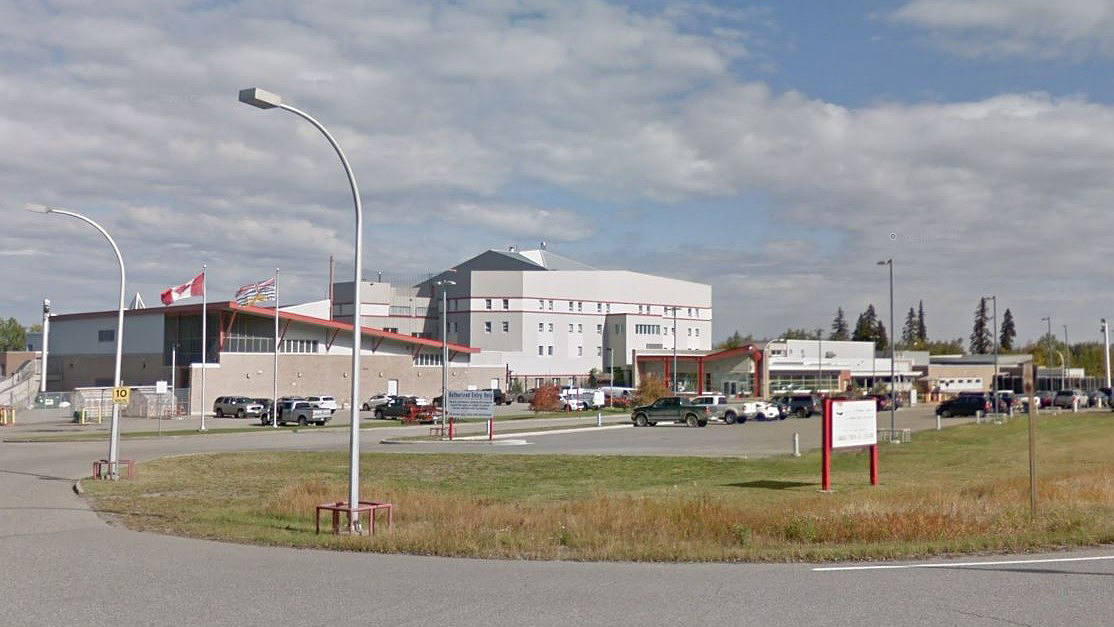A legal action brought by a former Prince George Regional Correctional Centre inmate against the provincial government over the use of solitary confinement in B.C.’s jails has gained certification as a class action proceeding.

Naveah North, formerly known as Cody Alan Cragg, is the lead representative in the action filed on behalf of inmates in provincial institutions who had been in solitary confinement for at least 15 consecutive days or in spite of suffering from a mental illness.
While in custody at PGRCC, North spent seven months in confinement in response to self-harming conduct and then was in a medical observation unit for 16 months where she was in lockup 23 hours per day.
North struggled with mental illness since she was a teenager, according to a summary provided in B.C. Supreme Court Justice Nathan Smith’s decision to certify the action.
In 2014, while at PGRCC, she was diagnosed with borderline personality disorder, obsessive-compulsive disorder, anti-social personality disorder, polysubstance disorder and difficulty identifying and expressing emotions.
“The plaintiff has also filed affidavits from six other current inmates who say they have spent lengthy periods of time in segregation or solitary confinement,” Smith writes.

“Their descriptions include: segregation cells filthy with blood and feces, sleep deprivation from lights being left on all night, and being allowed as little as half an hour a day outside their cell. Ongoing problems various affiants attribute to their time in solitary confinement include depression, post-traumatic stress disorder, and aggravation of pre-existing mental health conditions.”
In finding that the pleading disclosed a cause of action, Smith noted that North relies on three class actions in Ontario that raise similar assertions and have not only been certified but have proceeded to summary judgment on their merits and decided in favour of the plaintiffs.
One of them was on behalf of inmates in the provincial system and yielded a global award of $30 million, Smith also noted.
Lawyers representing the provincial government took issue with the assertion that “solitary confinement” is used in B.C. jails. In answer, Smith said the term could be replaced with “separate confinement and/or segregation.”

Get breaking National news
Provincial government lawyers also took issue including inmates who had been in confinement as far back as April 18, 2005, as members of the class, citing a two-year limitation period. But Smith said there can be an exception for a person under a disability such as mental illness and so incapable of managing their affairs.

Counsel for the province also said inmates in segregation may not necessarily be alone and, in some cases, are double-bunked. They also assert that North and the others who provided affidavits shared a cell with another inmate for at least part of the time they were in segregation and so were provided with “meaningful human contact.”
They also say inmates’ health records, including any mental health diagnoses, are kept separate from correctional records and correctional officials have no access to them.
Craig Jones, a law professor at Thompson Rivers University, said that while the matter can still be taken to trial, where the judge must decide on the balance of probabilities whether the provincial government was in the wrong, he doubts it will go that far.
“Practically speaking, I’m going to guess that less than one per cent of class actions actually go to trial,” Jones said. “After certification, they’re almost always settled, so a certification win is a big deal.”

North is claiming the province’s actions were a violation of inmates’ Charter rights, which Jones said “might be a little bit of the wave of the future.”
“You know, 10 years ago people would’ve probably told you that cases like this probably wouldn’t have had a hope in heck without showing some sort of malice on the part of the government but it’s a bit of a different world.”
If a settlement is reached, Jones said it will be made public because it must be approved by a judge.
Although there were stints at the Colony Farm forensic psychiatric hospital in Port Coquitlam, North spent much of four years at PGRCC.
In May 2018, she was sentenced to a further four years in a federal institution for setting a house on fire in Bear Lake and for two attacks at Colony Farm, one of which led to a conviction for attempted murder.

Given a lengthy criminal record that included previous convictions for attempted murder and arson, Crown counsel argued in favour of declaring North a dangerous offender, which can carry an indeterminate sentence of imprisonment.
But the sentencing judge found North had taken significant steps to turn her life around, although she remained subject to a 10-year long-term supervision order once her time behind bars had been served.

Comments
Want to discuss? Please read our Commenting Policy first.